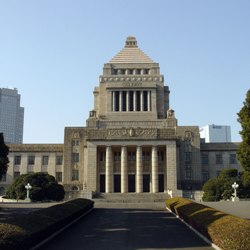Japan Mulls Draconian Measures for its Integrated Resorts

Last year, Japan’s parliament passed a casino bill permitting at least three integrated casino resorts to be built by 2023 with the potential to generate annual net profits in excess of $10 billion for the country. Naturally, many of the world’s biggest casino operators have since expressed an interest in winning a contract to build and set up their businesses in the lucrative Japanese market, including the likes of Wynn Resorts, MGM Resorts International, Genting Singapore Plc, and Caesars Entertainment.
Over the past few weeks, however, Japan has indicated that it intends to apply some very strict policies and measures to the industry, such as high tax rates and limiting the frequency of visits to such venues, all of which are likely to diminish the potential attractiveness of the market for investors.
Top Tax rate of 50%
One of the most shocking revelations for potential investors this week was the news that the government intends to levy high rates of tax on the industry as part of its Integrated Resorts (IR) Implementation Bill. The bill is expected to be submitted to the country’s parliament for consideration during the current legislative session, and all indication so far are that the following steep taxes will be applied to operators, depending upon their revenue:
– A 30% tax on casinos earning up to $2.8 billion in revenue
– A 40% tax on casinos earning up to $3.7 billion in revenue
– A 50% tax on casinos earning above $3.7 billion in revenue
One of the major reasons that casino gambling has not been allowed in Japan to date is due to concerns over the negative impact the industry could have on its society. The government has therefore suggested that by imposing such high rates of tax more money could be allocated towards funding gambling addiction and social security programs.
High Cost of Business
According to some estimates, the cost of purchasing land and building just one integrated casino resort in Japan could be more than $10 billion, with some of the locations touted so far including Tokyo, Yokohama and Osaka.
In order to commit to such a massive outlay of money, the casino operators will need to ensure that they receive a good return on their significant investments, which would less likely be the case considering the high tax rates recently proposed. Rather than abandoning their efforts for a license, however, winning operators may simply be less inclined to spend as much on the resort’s development “due to lower return on invested capital.”
The situation is likely to be further exasperated by another proposal to limit the area of a resort dedicated to gambling to just 3%, and no more than 15k-square-meters in the case of bigger venues. As Seth R. Sulkin, CEO of Pacifica Capital K.K, explains:
“Gaming companies are very rational: they’ll calculate how much revenue they can generate with a 15,000-square-meter casino floor, and they will only invest as appropriate for that, which certainly won’t be $10 billion.”
Other Concerns
Another proposal that has alarmed casino companies is a plan to limit the number of times a person is allowed to visit a casino to 10 times per month, with a further limit of three visits over a seven day period. Compliance with the scheme can subsequently be tracked by monitoring special identity cards issued containing an IC chip.
Furthermore, a ¥2,000 (US$19) entry fee has been proposed for Japanese citizens and foreigners living in country, although tourists would be allowed to enter free-of-charge. These entrance levies will then be divided out between the central government and the local government where the casino resort is located, with some of the money allocated towards financing gambling addiction programs.
The casino fee is an issue still currently under discussion, but in the meantime some legislators have proposed increasing the entrance fee by as much as four of five times the ¥2,000 suggested. Interestingly, however, around 42% of Japanese people have said that they would not visit a casino no matter what the the admission fee, according to a recent poll.
Finally, it must be noted that many of the measures that are currently being explored in Japan have been inspired by Singapore’s casino industry, whose extremely successful casino model has been scrutinized by countries from all across the world.








